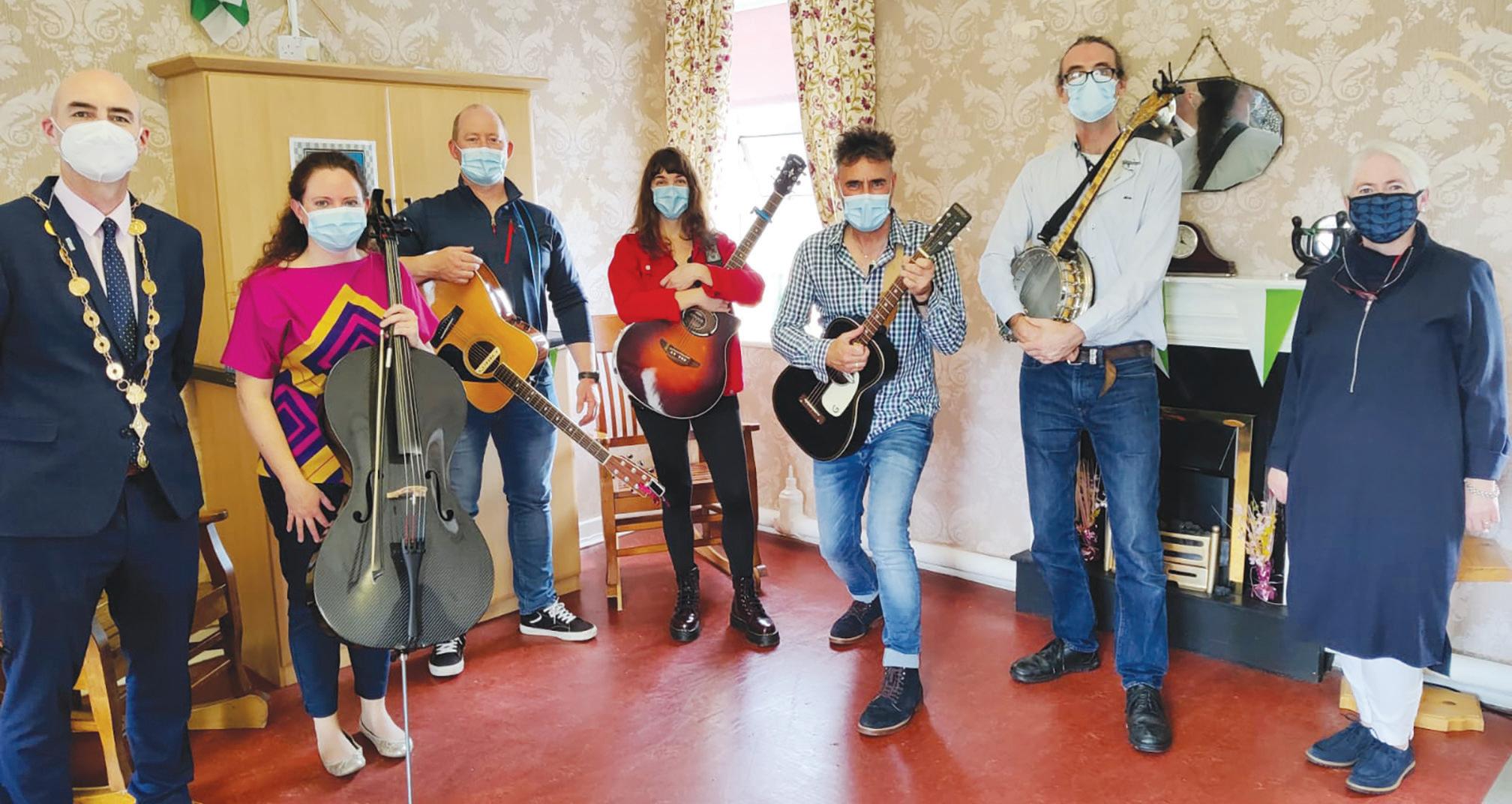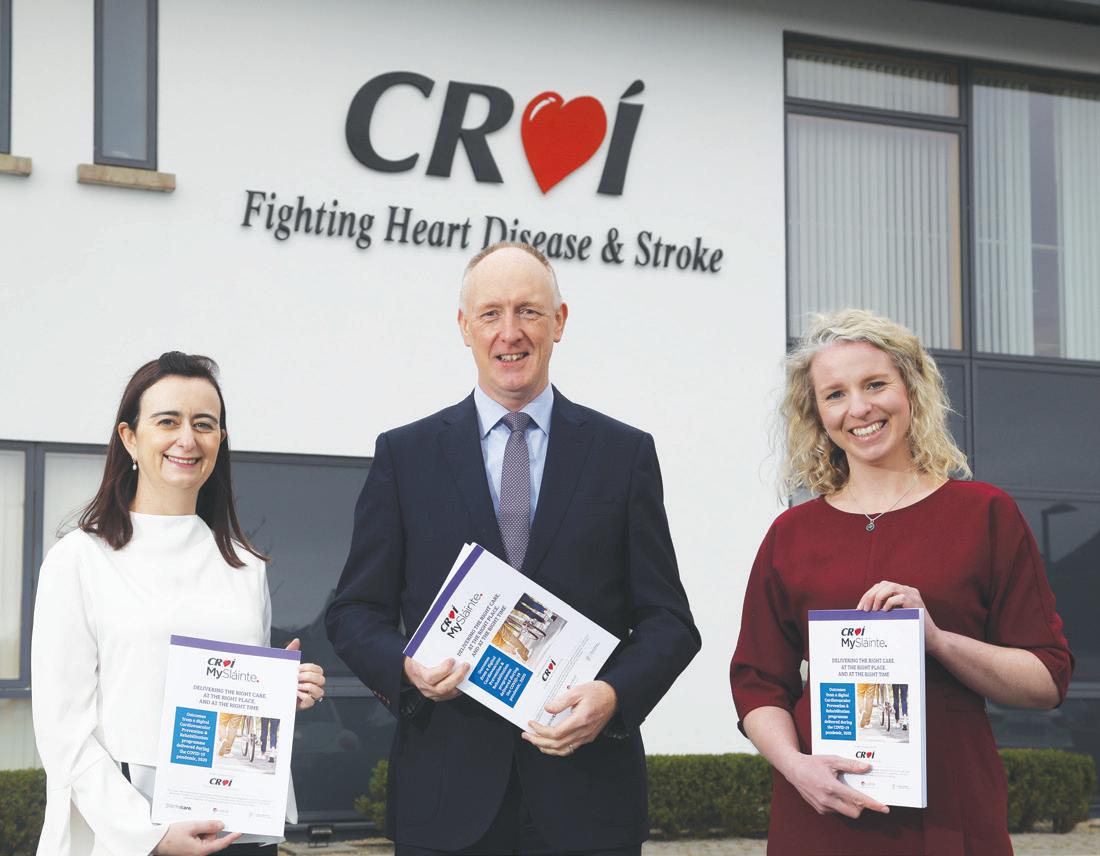CERVICAL CANCER PREVENTION WEEK
National Screening Service (NSS) raising awareness of value of CervicalCheck among key groups
C
ervicalCheck marked Cervical Cancer Prevention Week in January with three communications initiatives aimed at increasing uptake in key groups and improving information resources for media on CervicalCheck. The team targeted uptake in women aged over 50 and in counties where women are a little less likely to come for screening when invited. Additionally, the NSS developed a set of media guidelines for journalists and commentators about CervicalCheck, which were sent to editors. A new HSE public attitudes survey carried out by Core Research in 2021 has reported on the barriers women of menopausal age face when considering taking up their screening invitation. These barriers included a fear of the process; finding screening more uncomfortable at and finding screening embarrassing. In addition, half of all women surveyed said a fear of finding something was wrong would deter them from attending screening, whilst 1 in 5 women said they were concerned about attending their screening appointment due to COVID-19. New screening data also has shown that attendance declines as women age – meaning women over 50 are less likely to have any changes picked up and treated if they are there. The National Screening Service programme has begun a targeted campaign to raise awareness amongst women over 50 that screening is still for them. And that screening at regular intervals is one of the best ways to reduce their risk of developing cervical cancer. Dr Sarah Fitzgibbon, Primary Care Clinical Advisor with CervicalCheck, said that women over 50 can benefit from regular cervical screening tests. “Once women have finished having periods they often feel, ‘Screening is not for me, I don’t have a period, why would I need a screening test?’ In fact, we do encourage women to continue attending screening up to the age of 65.” She said that if women aged in their 50s haven’t ever had a cervical screen done through CervicalCheck, the programme is “actively” encouraging them to take part: “We are letting women know that just because you haven’t had a test done before, and you’re 55 say, you absolutely can come in and have a test done.” As part of Cervical Cancer Prevention Week, CervicalCheck also targeted six counties with the lowest uptake of cervical screening. The programme’s national target coverage rate is 80%, and the latest available figures from CervicalCheck show the five-year coverage (ending March 31st 2020) was 78.5%. There was some variation within this with 20 counties exceeding 75%; however, six counties had coverage below 75%. These were: • Clare (74.5%) • Dublin (73.9%) • Kilkenny (69.7%) • Laois (69%) • Monaghan (74.3%) • Roscommon (74.5%)
NATIONAL SCREENING SERVICE CELEBRATES OUTREACH SUCCESSES From policy launches to online talks to camogie teams, NSS has enjoyed huge engagement with events online The first of our online events was in February last year when we organised two hour-long webinars Cervical Screening from Public Health to Clinical Outcomes. They gave 763 GPs and practice nurses to the opportunity to engage with the CervicalCheck management team. Soon after, we hosted the annual CervicalCheck Annual Colposcopy Meeting with Nursing and Medical Teams online for the first time. It attracted strong attendance level of 96 colposcopy professionals. Since that time we have followed-up with a series of online events, both in webinar and meeting formats, covering topics such as CervicalCheck Laboratory Services; the Assisted Decision Making Act; and hereditary bowel cancer syndromes. We also successfully reached out to communities using this format, delivering a well-received presentations explaining screening to the Camogie Association of Ireland; and at BIAS, a high-profile event focusing on the inequality in women's healthcare and research, supported by the Royal College of Surgeons of Ireland and the Rotunda Research Department. Soon, we will hold the annual colposcopy meeting again online, marking a full year of online events. We’re grateful to all our staff and stakeholders for embracing this new way and engaging with our events to make them so successful.
CervicalCheck Clinical Director, Dr Nóirín Russell, said, “Lower participation in screening increases a woman’s personal risk of developing cervical cancer and also reduces the screening programme’s impact on population health. It is very important to offer services that meet the needs of the people who are eligible, and that we address lower uptake where we find it. “We know that certain groups – such as those in poor social circumstances; those with disabilities; members of the Traveller community; and members of the LGBT+ community - can feel excluded from using health services for many different reasons. We also know that women aged over 50 are less likely to take up their offer of screening. Or it might be that women aren’t aware that they can choose screening at any registered sample taker, and not just their own GP.”
HEALTH MATTERS SPRING 2022 | 63
063_HSE_Health Matters_Cervical Check.indd 63
16/03/2022 13:27












































